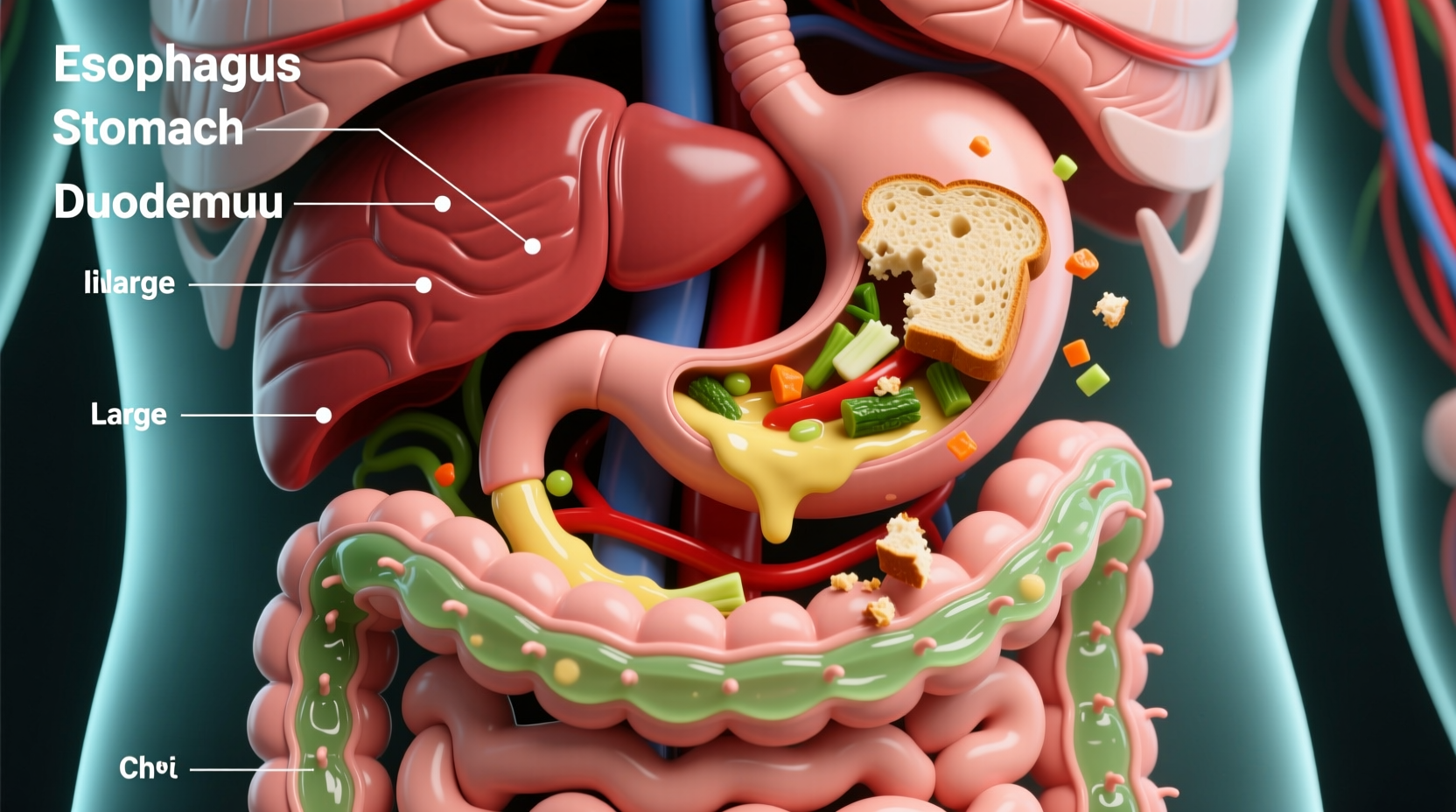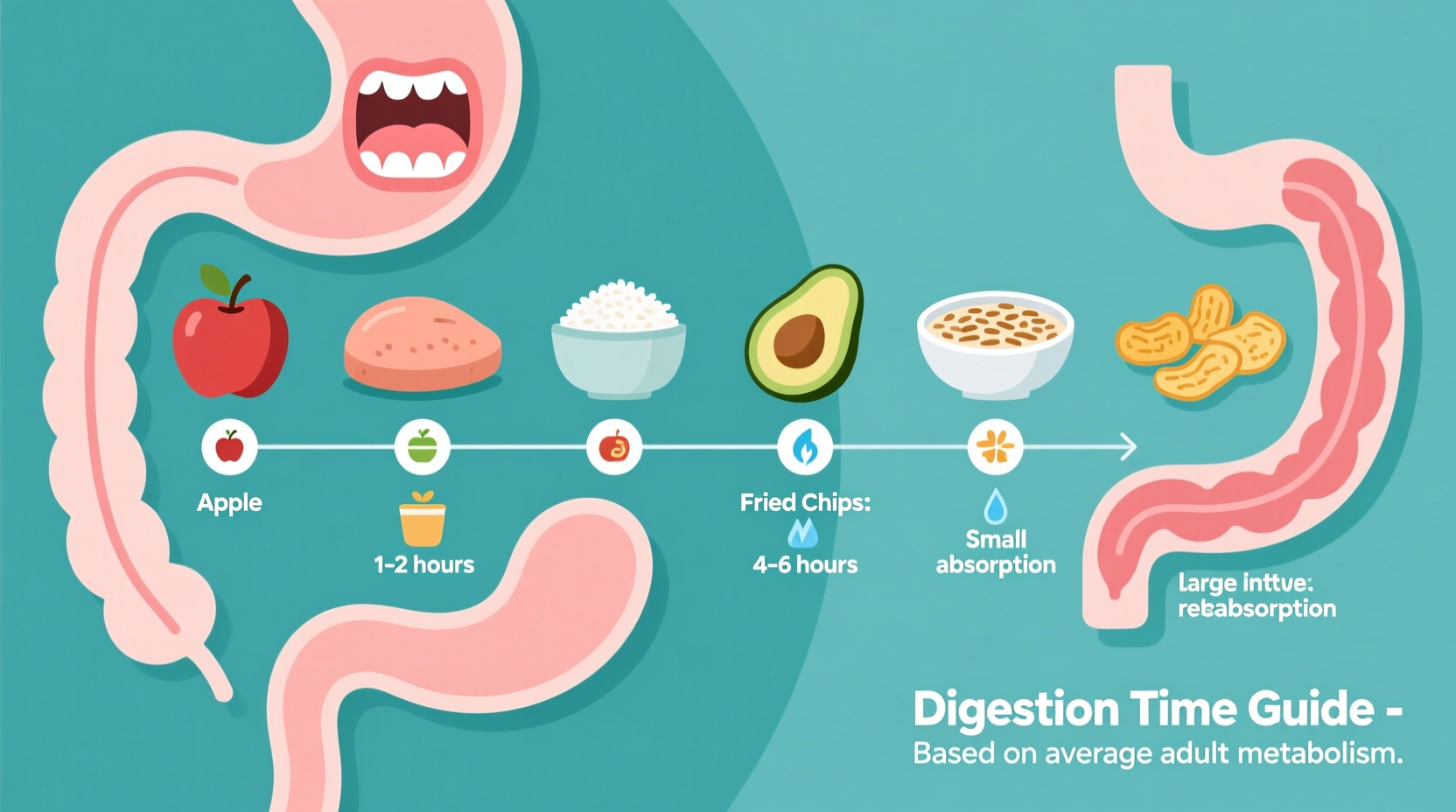Ever wondered why you feel full for hours after a steak dinner but get hungry quickly after eating fruit? Understanding how long foods take to digest helps optimize meal timing, manage digestive issues, and improve overall wellness. This comprehensive guide reveals scientifically-backed digestion timelines for common foods and explains what influences these critical processes.
What Determines Food Digestion Time?
Your digestive system processes different foods at varying speeds based on several key factors. Recognizing these variables helps explain why digestion time for fruits and vegetables differs significantly from proteins and fats.
Food Composition Matters Most
The macronutrient profile of your meal directly impacts digestion duration:
- Proteins require more time as stomach acid and enzymes break complex structures
- Fats slow gastric emptying, extending digestion time
- Carbohydrates generally digest fastest, especially simple sugars
- Fiber content significantly affects transit time through the intestines
Individual Factors That Influence Digestion Speed
Several personal factors create natural variations in how long does protein take to digest or any food category:
- Age (digestion slows with advancing years)
- Metabolic rate and overall health
- Hydration status
- Physical activity level
- Existing digestive conditions
- Stress levels affecting gut-brain connection
Food Digestion Timeline: What Science Tells Us
Research from the National Institute of Diabetes and Digestive and Kidney Diseases reveals specific digestion patterns across food categories. These average time for food to digest completely estimates represent typical healthy adults:
| Food Category | Stomach Processing Time | Complete Digestion Time | Key Influencing Factors |
|---|---|---|---|
| Watermelon, Strawberries | 20-30 minutes | 20-40 minutes | High water content, simple sugars |
| Leafy Greens, Cucumber | 30-40 minutes | 40-60 minutes | Low calorie density, high fiber |
| White Bread, Bananas | 60-90 minutes | 2-3 hours | Simple carbohydrates, moderate fiber |
| Chicken Breast, Fish | 2-3 hours | 3-4 hours | Protein complexity, fat content |
| Beef, Pork | 3-4 hours | 4-6 hours | High fat content, protein density |
| Nuts, Seeds, Avocado | 2-3 hours | 3-5 hours | High fat content, fiber composition |
| Beans, Lentils | 2-3 hours | 3-4 hours | Complex carbohydrates, resistant starch |
This comparison demonstrates why understanding digestion time for fruits and vegetables versus proteins helps plan meals for optimal energy and comfort. The Mayo Clinic confirms that high-fiber foods generally move through the digestive tract more efficiently than low-fiber options, despite requiring slightly longer initial processing.

Practical Applications: Using Digestion Knowledge Daily
Knowing how long does meat take to digest in stomach isn't just academic—it has real-world applications for meal planning and digestive health.
Optimizing Meal Timing for Energy Management
Understanding digestion timelines helps prevent energy crashes and digestive discomfort:
- Consume faster-digesting carbs before workouts for immediate energy
- Pair proteins with vegetables for sustained energy release
- Avoid heavy fats before physical activity due to extended stomach processing
- Allow 3-4 hours between substantial meals for complete gastric emptying
Navigating Digestive Sensitivities
Individuals with conditions like IBS or gastroparesis experience altered factors that affect food digestion time. The American Gastroenterological Association recommends modifying food choices based on personal tolerance rather than general timelines. For example, those with slow gastric emptying may need to reduce high-fat foods that typically take 4-6 hours to process.
Special Considerations That Alter Digestion Timelines
Certain conditions create significant variations in the average time for food to digest completely. These context boundaries help explain why standard timelines don't apply universally:
Age-Related Changes in Digestion
Digestive efficiency naturally declines with age. Research published in the American Journal of Clinical Nutrition shows gastric emptying slows by approximately 15-20% between ages 30 and 70. This explains why older adults often feel full longer and may need smaller, more frequent meals.
Hydration's Critical Role
Proper hydration significantly impacts digestion speed. The National Academies of Sciences, Engineering, and Medicine confirms that adequate water intake helps move fiber through the digestive tract, potentially reducing total digestion time by 1-2 hours for high-fiber meals.
Putting Digestion Knowledge Into Practice
Understanding how long foods take to digest empowers you to make informed choices about meal composition and timing. By matching food choices to your daily schedule and digestive needs, you can optimize energy levels, reduce discomfort, and support overall digestive health. Remember that individual variation means these timelines serve as general guidelines—your personal experience may differ based on unique physiological factors.











 浙公网安备
33010002000092号
浙公网安备
33010002000092号 浙B2-20120091-4
浙B2-20120091-4